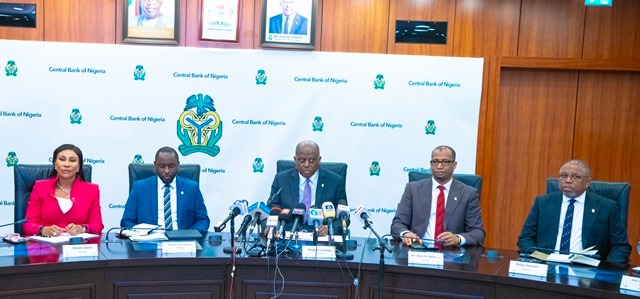The Central Bank of Nigeria (CBN) said it has approved the release of the Nigerian Foreign Exchange (FX) Code to be officially launched on January 28, 2025.
“The Bank will formally launch the Code at the CBN Head Office Auditorium, Abuja, on Tuesday, January 28, 2025,” the CBN said in a notice published on its website.
According to the CBN, the FX code serves as a guideline to the banking industry to promote ethical conduct of authorised dealers in the Nigerian Foreign Exchange Market (NFEM).
The apex bank had in a bid to strengthen the governance and transparency of Nigeria’s FX market, introduced revised guidelines for the Nigeria Foreign Exchange Market (NFEM) in November 2024.
A key feature of these guidelines requires the boards of banks, alongside their Chief Executive Officers (CEOs) and Chief Compliance Officers, to annually attest to the Nigeria FX Code of Ethics and Conduct. This attestation underscores their commitment to uphold market integrity and comply with all CBN-issued circulars and guidelines.
The revised guidelines aim to deepen the foreign exchange market following the consolidation of all official FX market windows. The circular, issued by Omolara Omotunde Duke, director of the CBN’s financial markets department, supersedes prior directives, including the operational changes announced on June 14, 2023, and earlier circulars dating back to 2017.
Under the new framework, authorised dealers must facilitate FX transactions for firms and individuals while ensuring compliance with regulations. These dealers are tasked with conducting due diligence, providing transparent pricing, and offering market access through digital solutions. Furthermore, all legitimate FX transactions must occur exclusively through authorised dealers, while dealings with unlicensed intermediaries are strictly prohibited.
Bureaux de Change (BDC) operators are also included in the revised guidelines and licensed BDCs are allowed to purchase FX from authorised dealers to meet customer needs, within the limits set by the CBN. Similarly, all FX transactions conducted by BDCs, International Money Transfer Operators (IMTOs), and authorised dealers must adhere to the terms of their licenses and the Nigeria FX Code.







